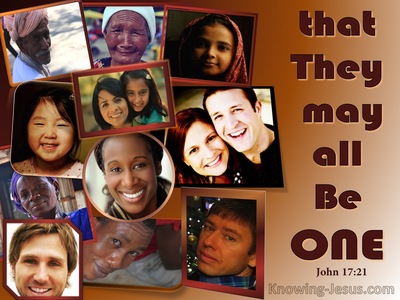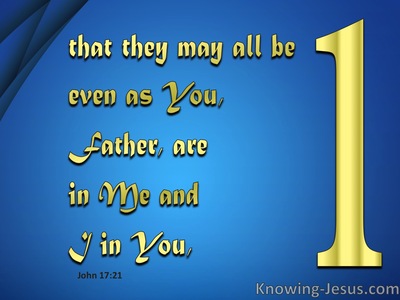
HOMILY
FOR THE SOLEMNITY OF THE ASCENSION OF THE LORD, YEAR B
Rev.
Fr. Ezekoka Peter Onyekachi
Once upon a time, a
devout Christian was shaving issues with his neighbour. It reached the extent
that a fight suddenly broke out between them. The devout man had to run into
his house, picked up his machete, and went in pursuant of his neighbour. On
seeing this, his neighbour had no option than to run for his dear life. As both
were still on the run, one following after the other, suddenly the church’s
angelus bell was heard for it was 12:00pm. The neighbour kept on running.
However, the enraged and pious Christian dropped his machete, stood upright
with folded hands, and prayed the angelus as his piety demanded of him.
Immediately he finished praying, he dramatically loosened up his folded hands,
bent to the ground, picked up his machete, and then continued the pursuit.
Christians nowadays have tried to differentiate between devout life and life in
the street. They pray to God and at same prey on their neighbour. They prefer
fraternity and togetherness with people in the same social groups and unions
with them more than their fellow Christians. They fight, destroy, pursue and
even kill fellow church members, while at the same time portray piety and
religiosity. Such a thing and its likes bring about disunity and hatred. Jesus
knew these challenges and human inclinations, and already prayed for us: Father, may they be one.
The Gospel (John
17b:11b-19) of today deals on the Priestly Prayer of Jesus. It is a prayer that
is rooted in unity. Jesus prayed God to keep his disciples as one. The world is
known for its divisiveness, selfishness and aggression. The world today is full
of prejudice, unhealthy competition, lust, selfishness, egotism, hurt, angry
spirit, possessiveness, pride, self-praise, hate and war. It is against such
influence that Jesus prays. Christians are to be one just as Jesus and the
Father are one. The unity that ought to exist amongst us should be as strong as
the indestructible unity between the Father and the Son. Jesus in this prayer
tries to open our minds to the bad characters that come as the result of the
depraved nature of man. The divisive world was a threat to the early disciples
and even a threat to us today. Being in the world implies that they are prone
to be led astray by such an influence. Jesus had to pray that they be kept
together in unity.
Who
is the paradigm of this unity? The model of this
unity is that existing between the Father and the Son. No other example of
unity is worthy of being emulated. Christians are to be united as the Father
and the Son are. This implies that we possess the same kind of unity that the
Father and the Son have. We are to be one in nature, character and purpose,
just as the Trinity. In nature, we
must go beyond the inclination of the human nature, and embrace the new
creation which God moulds us into. Indeed, if we are in Christ, we are a new
creation; the old has gone, and the new has come (2 Cor.5:17). Being one in
nature is a clear reminder of our identity as new nation, new temple, new
family, new fellowship and new race. The requisite for membership in this
newness is unity.
In character, we must be holy, denying the sins of the flesh, and
living holy lives. Detachment from evil and attachment to God is a sure way of
bearing fruits, especially the fruits of the Spirit. The fruit of the Spirit is
love, joy, peace, patience, kindness, goodness, faithfulness, gentleness and
self-control (Gal. 5:22-23). In purpose,
we are to surrender and give all we have for the success of the message of
salvation to a degenerated society, a world full of people in desperate need.
We are to give all (not tithe) for the salvation of the world, just as Jesus
and the Father gave all for the salvation of the world.
There are some other
features Christ in his prayer assures us. These are the consequences of unity.
United we stand, but divided we fall. The more we are united, the more we are
secured. The more we are united, the more we are impenetrable and invincible.
Unity gives birth to many other societal virtues. Christ prays for our
protection. He does not want anyone to be loss. He gives us the free will to
choose him, but does not force us against our will. Only the children of
perdition will go with the option of not choosing Jesus. Jesus wants our joy to
be complete. In joy, there is a better performance. In joyful calmness and
equanimity, there is a better productivity. Joy would make the good news we
preach productive. The intention of the devil is to introduce sadness where
there is joy. And so, Jesus prays that we should be kept from the evil one. We must
be preserved from the evil one because the evil one stands opposed to the message
of Jesus, which is the message we bear.
Unity breeds one voice.
This is evident in the First Reading (Acts 1:15-22). Peter and the brethren had
one voice, and they were able to reach a decision regarding the replacement of
Judas, who allowed himself to suffer perdition. When there is one voice,
decisions are easily made, conclusions are easily reached. But if there is no
one voice as a result of many who want their voices to be heard, meetings are
prolonged and conclusions to be reached are adjourned. The easy way to go about
installing unity is love. We must learn to love God in our fellows. We must
learn to love God in our neighbours we meet daily; that way we grow in unity. If
we act like the man in our lead story who even in the face of wickedness and rancour
claimed pious, then we end up deceiving ourselves. The perfect love we may
claim to have for God is to love him in or neighbour. This is the message of
the Second Reading (1 John 4:11-16).

A story is being told
of a man who woke from his dream and saw an angel writing in a golden book. The
man quickly asked the angel: what are you writing? The angel replied: the names of those who love the Lord. He
asked if his name was there, and the angels answered a no. At this, the man beckoned
on the angel to write his own name as one who loves his fellow men. The angel
then wrote and vanished. The next night, the angel came again with a great
wakening light and showed the man the names of those whom the love of God has
blessed, and lo, the first name on the list was the man. If anyone says he loves God and hates his neighbour, he is a liar, for
the one who does not love his neighbour whom he has seen cannot love God whom
he has not seen (1 John 4:20). With these words, I wish you a blessed week
ahead. Happy Sunday. God bless you.



No comments:
Post a Comment